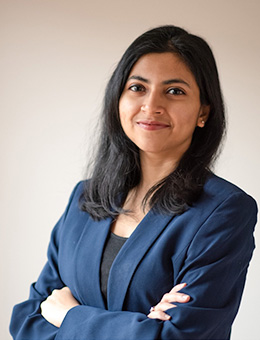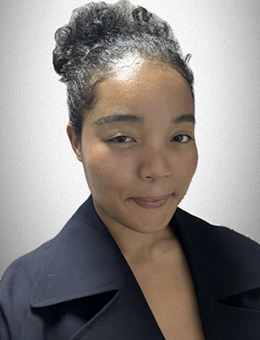These three panelists focus on racism and ableism and intersections with mental health. The first presentation investigates the link between racism and chronic pain among different racial groups in the United States. The study finds significant correlations between experiences of race-based discrimination and increased pain severity and interference, especially among Hispanic Americans. The findings emphasize the need for healthcare providers to consider racial discrimination in chronic pain assessment and treatment. The second presentation explores body image development among mixed-race adolescents in Japan, influenced by societal views of mixed-race individuals. Using Naomi Osaka as a case study and DuBois' Double Consciousness framework, the study highlights the impact of cultural negotiation on body image and calls for culturally sensitive care to support these youth. The final presentation examines a qualitative case study of thirty professional counselors in Central and Western Canada who used hope-based interventions to address systemic oppression and empower clients. It highlights the importance of cultural humility, curiosity, learning from failure, and resilience, offering a framework to guide novice counselors in turbulent times
- Annwesha Dasgupta, MSc. (co-researcher Dr. Monnica T Williams)
- Libera Amadiwakama Mochihashi, MA
- Dr. Priya Mani
Annwesha Dasgupta, MSc. (co-researcher Dr. Monnica T Williams)
 Annwesha Dasgupta is a Ph.D. student in Experimental Psychology at the University of Ottawa. She is working under the supervision of Dr. Monnica Williams at the Laboratory for Culture and Mental Health Disparities. She has completed her Bachelors in Psychology and Masters in Applied Psychology from the University of Calcutta, India, in her home country. Her Masters research was geared towards better understanding the experiences of transgender individuals of Kolkata, India. She has also worked with young mothers residing in urban slum areas of Kolkata as part of another project before moving to Canada to pursue her Ph.D. Her research interests are primarily focused on better understanding the mental health outcomes of people of color that stem from the intersection of race, culture, and gender. Currently, Annwesha is working to produce culturally informed research to advance equitable mental health care for marginalized and underserved communities.
Annwesha Dasgupta is a Ph.D. student in Experimental Psychology at the University of Ottawa. She is working under the supervision of Dr. Monnica Williams at the Laboratory for Culture and Mental Health Disparities. She has completed her Bachelors in Psychology and Masters in Applied Psychology from the University of Calcutta, India, in her home country. Her Masters research was geared towards better understanding the experiences of transgender individuals of Kolkata, India. She has also worked with young mothers residing in urban slum areas of Kolkata as part of another project before moving to Canada to pursue her Ph.D. Her research interests are primarily focused on better understanding the mental health outcomes of people of color that stem from the intersection of race, culture, and gender. Currently, Annwesha is working to produce culturally informed research to advance equitable mental health care for marginalized and underserved communities.
Abstract: Racism is a chronic source of stress for people of color living in the United States, negatively impacting their mental health, well-being and physical health. Emerging evidence in pain research suggests that psychosocial trauma or ongoing stressors, such as racism, play an instrumental role in the development and maintenance of chronic pain, a major health concern and a leading cause of disability worldwide. This study analyzed data from a large cross-sectional survey of 930 Americans (32% Black, 21% Asian, 17% Hispanic, and 29% White) to test the hypothesis that experiences of race-based discrimination are associated with chronic pain. Participants completed self-report measures of ethnic discrimination, racial microaggressions, and pain severity and interference. The findings indicate that Hispanic Americans reported greater pain symptoms as compared to all other racial groups (F=6.06; p<.001). Pearson correlation analysis showed significant positive correlation between experiences of discrimination in the past year and pain interference (r = .40) and pain severity (r = .43). Similar significant correlations were found between experiences of racial microaggressions and pain interference (r=.23) and pain severity (r=.23). Multiple regression analyses revealed that experiences of discrimination in the past year significantly predicted pain interference for Black (B=.03, p=.007), Asian (B=.04, p=.006), and Hispanic Americans (B=.09, p=<.001), beyond age and negative affect, while racial microaggressions did not. Among White participants, neither discrimination nor microaggressions were significant predictors of pain. These findings underscore the adverse impact of racism on the health of racialized Americans. It also highlights the need for healthcare providers to consider racial discrimination as a significant factor in the assessment and treatment of chronic pain. Understanding how racism affects overall health is crucial for developing effective strategies to mitigate its harmful effects and improve health equity.
Libera Amadiwakama Mochihashi, MA
 Libera is Japanese-Nigerian independent researcher and practitioner from Japan. Her unique heritage has profoundly influenced both her personal and professional perspectives, fueling her passion for exploring complex social dynamics within diverse populations. During her master's studies, she delved into the intricate subject of body image development among the mixed-race population in Japan. This research allowed her to investigate the nuanced experiences of individuals navigating dual cultural identities. Additionally, she presented on the topic of body image and its relationship with sexual consent at University of Tokyo, Komaba Festival 2024. Currently, she is engaged in a research project that examines the experiences of microaggression faced by the multicultural population in Japan. Through this project, she aspires to contribute to a broader understanding of the challenges faced by multicultural communities and to advocate for a more inclusive and equitable society. She is dedicated to using her academic and practical expertise to address social issues pertinent to multicultural populations, striving to foster an environment of acceptance and understanding.
Libera is Japanese-Nigerian independent researcher and practitioner from Japan. Her unique heritage has profoundly influenced both her personal and professional perspectives, fueling her passion for exploring complex social dynamics within diverse populations. During her master's studies, she delved into the intricate subject of body image development among the mixed-race population in Japan. This research allowed her to investigate the nuanced experiences of individuals navigating dual cultural identities. Additionally, she presented on the topic of body image and its relationship with sexual consent at University of Tokyo, Komaba Festival 2024. Currently, she is engaged in a research project that examines the experiences of microaggression faced by the multicultural population in Japan. Through this project, she aspires to contribute to a broader understanding of the challenges faced by multicultural communities and to advocate for a more inclusive and equitable society. She is dedicated to using her academic and practical expertise to address social issues pertinent to multicultural populations, striving to foster an environment of acceptance and understanding.
Abstract: If Japanese society views mixed-race people with envy and prejudice (Shimoji, 2018), what kind of body image do mixed-race adolescents develop from living in Japan during puberty? After obtaining the title of "four-time Grand Slam winner" in 2018, Naomi Osaka, a Haitian and half-Japanese tennis player, rose quickly to fame, drawing strong attention not only from sports but also from the entertainment industry within Japan. The term ha-fu is an example of wasei-eigo, or English terms adapted into Japanese, that originally derives from the word "half." Perceptions of the term are mixed: as the Japanese mass media utilizes it to simultaneously ridicule and appraise multinational people (Clercq, 2022), some have come to argue that the name is derogatory. Under such mixed messages of scrutiny and admiration, what kind of effect does this have on mixed-race youth? According to a 2018 demographic dynamics research report by the Ministry of Health, Labour, and Welfare, about one in fifty children were reported to be considered ha-fu. They make up a significant proportion of the population and are increasing in number due to the effects of globalization, yet no studies have been conducted to examine their body image development processes, despite their complex and nuanced upbringings. In my proposed presentation, I will discuss how negotiating different cultures and values, and such dilemmas, can influence the body image development process of mixed-race adolescents, using DuBois' conceptual framework of Double Consciousness. I will also address whether the body image development of marginalized and racialized communities can be isolated from the universalization of whiteness, and emphasize the importance of developing culturally and racially sensitive care to improve youth's body image.
Dr. Priya Mani, PhD
 Priya Mani is an Associate Professor in the Counselling Psychology program (Faculty of Education) at University of Manitoba. Research interests include career development, cultural diversity and professional development of counsellors.
Priya Mani is an Associate Professor in the Counselling Psychology program (Faculty of Education) at University of Manitoba. Research interests include career development, cultural diversity and professional development of counsellors.
Abstract: This presentation explores results of a qualitative descriptive case study of ways in which thirty professional counsellors from Central and Western Canada reconstructed their social justice and multicultural orientation by using hope-based interventions to inform their practice during societal times of turbulence. Noting systemic oppression (social, economic, and political structures) and cultivating a sense of self-empowerment with the client where they are also encouraged to tap into undiscovered potential in the contexts of their lives, requires a shift to practice cultural humility within a critical pedagogy. The strategies that counsellors could potentially use to address challenges were by developing a sense of cultural humility through a lens of hope. The areas that will be discussed for this presentation will focus on what hinders the process of engagement with diverse clients, the importance of developing a curiosity competency, the nature of identifying failed attempts and learning through failure, increasing risk tolerance, exploring, and building resilient coping, and sustaining cultural humility over time through a lens of hope. This presentation will enhance university programs by providing a preliminary framework identified by professional counsellors regarding the development of multicultural knowledge and hope-based interventions from which novice counsellors may be able to draw from in order to enhance their practice during tumultuous times. This study should help us in understanding how professional counsellors handle and address challenges in working with diverse clients, draw from hope-based interventions when working with clients, and how they sustain their own hope and well-being in the work that they do. The resulting framework would assist novice counsellors in obtaining a more complete picture of the application of hope, multicultural knowledge, and standards in practice during societal times of unrest.
